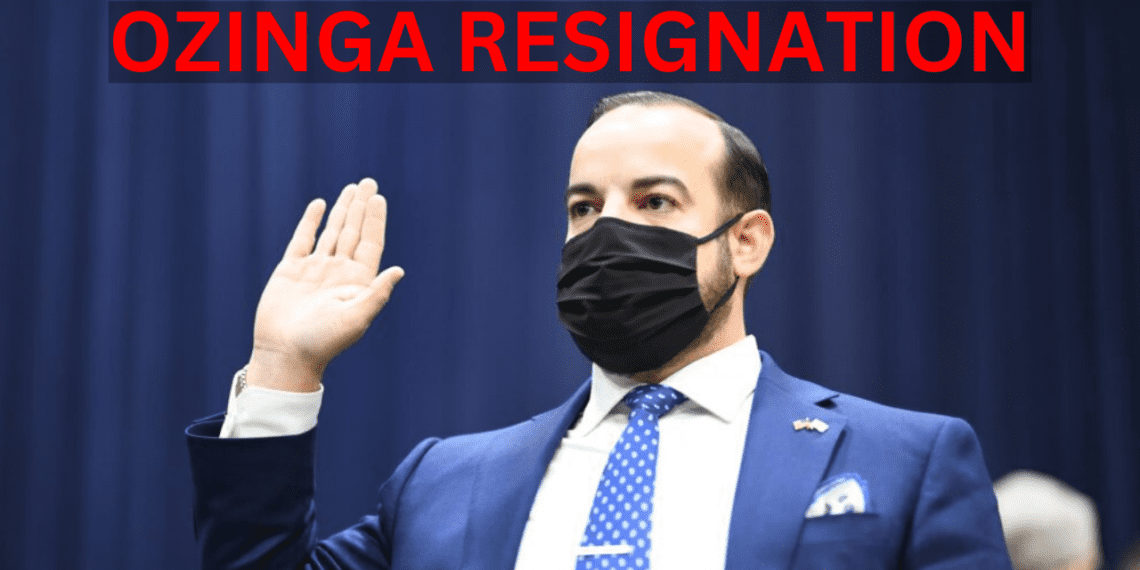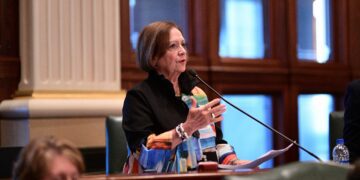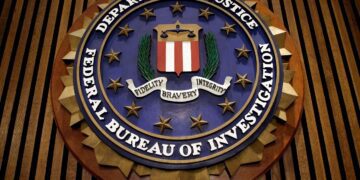***Update: Sources in will county have indicated that Tim Ozinga has NOT announced his resignation as Chairman from the Will County Central committee.
The abrupt resignation of State Representative Tim Ozinga has thrown the Illinois GOP into a whirlwind of speculation, concern, and introspection. Ozinga, a figure whose tenure in office has been fraught with controversy, leaves behind a legacy that has sparked heated debates among conservatives in Illinois.
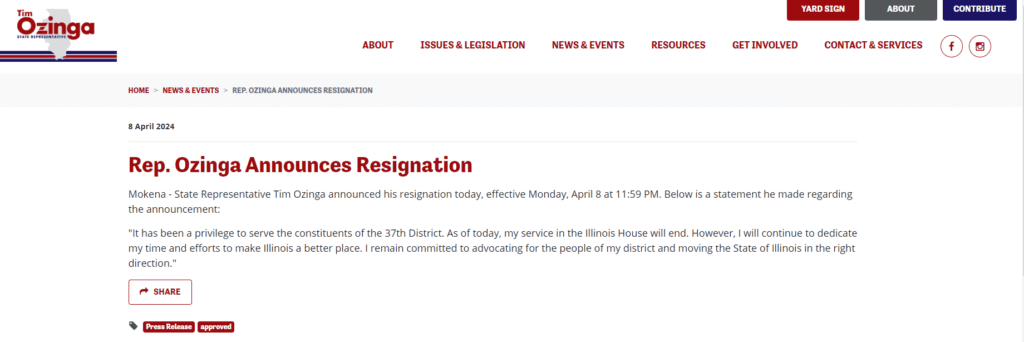
Among the most contentious aspects of his career is his vote to allow non-U.S. citizens the right to arrest American citizens, a move that has been met with strong backlash from conservative circles. This legislation, which enables individuals who are not citizens, including those under DACA, to become police officers, has raised serious questions about the implications for public safety and the sanctity of American citizenship. Critics argue that such a measure dilutes the authority of law enforcement and undermines the very fabric of national sovereignty, setting a precedent that could have far-reaching consequences.
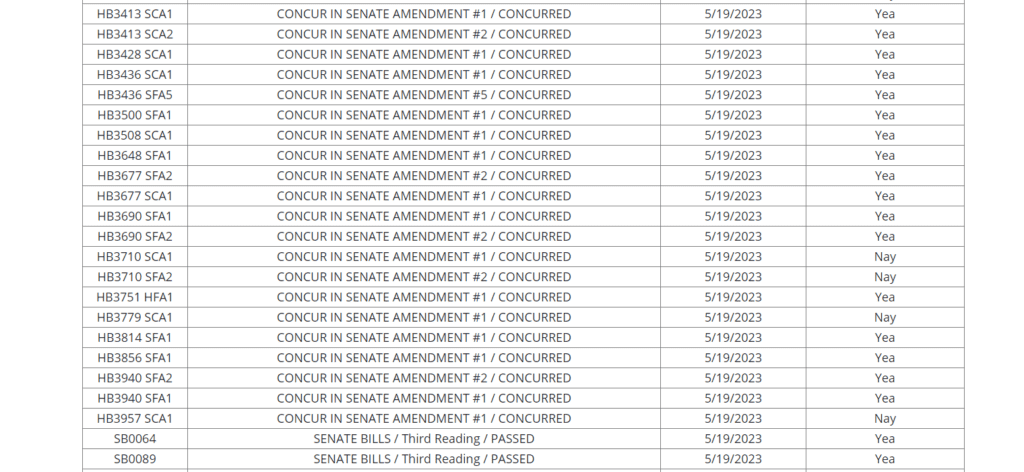
This contentious vote is but one element of a broader narrative of controversy that has defined Ozinga’s time in office. This publication has been instrumental in bringing to light a series of incidents that have cast a shadow over Ozinga’s political career. One of the most significant of these is the revelation of the Illinois GOP’s involvement in the targeting of conservative candidates during the April 4th 2022 election.
The presentation of mailers at a meeting of the Will County Republican Central Committee, which criticized conservative grassroots candidates and were linked to the IL GOP, marked a turning point in the perception of Ozinga’s leadership. The fact that these mailers were approved by IL GOP general counsel John Fogarty and indirectly connected to Ozinga through the use of the IL GOP’s postage discount, intended to create an unfair competitive advantage, has stirred a sense of betrayal within the party’s conservative base.
The reaction to these revelations was swift and severe. Attendees of the meeting, initially in disbelief, were left to grapple with the stark evidence of the party’s attempt to sway the election away from conservative candidates. This maneuver, seen as a direct attack on the conservative grassroots, highlighted a deep rift within the party, challenging its claims of unity and shared values.
Ozinga’s financial dealings further complicate his legacy. His significant contributions to both the Republican Party of Illinois and the Will County Republican Central Committee, especially in the context of the controversial election, have prompted scrutiny and speculation about the motivations behind these donations. The timing and size of these contributions, juxtaposed with the contentious political atmosphere, raise questions about their intended impact and the dynamics of power and influence within the party.

Moreover, Ozinga’s record of endorsements has been a point of contention. His support for candidates like Richard Irvin and Keith Pekau, who have previously taken positions or made statements that align with Democratic policies, has alienated a considerable segment of the party’s conservative base. These endorsements reflect a broader tension within the GOP, as the party grapples with its identity and the challenge of balancing ideological purity with political pragmatism.
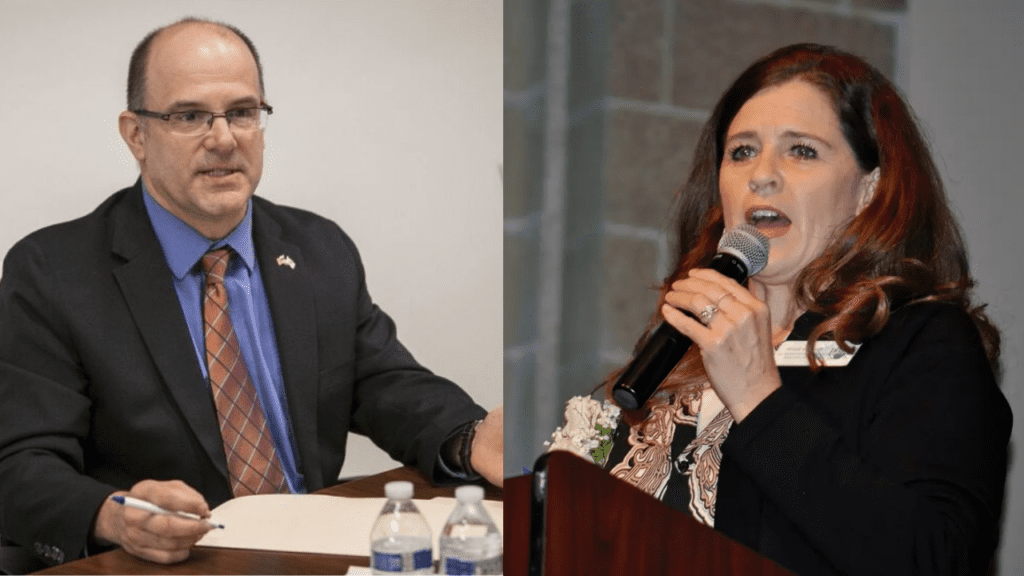
Following Ozinga’s resignation, attention turns to the future of the GOP in Illinois and the process of choosing his successors. Ozinga has indicated a preference for appointing either Michelle Smith or Mark Batinick as the next chair of the Will County Republican organization, a decision that has ignited debate. Each candidate brings their own controversies: Smith is known for her string of electoral defeats, indicating a possible lack of voter appeal and political acumen, while Batinick has supported pandemic-related measures that diverge from the party’s principles on personal freedom and economic liberty, notably his calls for Governor JB Pritzker to enact a statewide mask mandate and to issue a stay-at-home order. These selections highlight the challenges the party faces in finding leaders who can manage the intricacies of modern politics while adhering to conservative values.

Amid the myriad of challenges and controversies surrounding Tim Ozinga’s political career and sudden resignation, it’s important to note his continuing influence within the Illinois GOP as a Republican State Central Committee member. This role places him in a position of substantial power and responsibility within the party, affording him a significant platform from which to shape policy, strategy, and the broader ideological direction of the GOP in Illinois. His presence on this committee underscores the complexities of his legacy and the dual nature of his impact on state politics. While his legislative and leadership decisions have sparked debate and discord, his ongoing involvement in the party’s central committee suggests that his influence on the political and ideological landscape of the GOP in Illinois is far from over. As the party navigates its current turmoil and looks toward future elections, Ozinga’s role could prove pivotal in steering the GOP through its internal divisions and toward a more unified or potentially more fractured future. The balance he strikes between addressing the concerns raised by his tenure and leveraging his position to influence the party’s direction will be closely watched by both supporters and critics alike, highlighting the enduring complexity of political life and leadership within the GOP.
Within these challenges, the prospect of Patrick Sheehan replacing Ozinga in the state legislature offers a beacon of hope for those in the party longing for a return to core conservative values. However, the true test for the Illinois GOP lies in its ability to reconcile the divergent factions within its ranks, address the concerns raised by Ozinga’s tenure, and chart a path forward that honors the principles of conservatism.

As the party reflects on the events leading up to Ozinga’s resignation, it faces a critical moment of self-examination. The controversies surrounding his votes, particularly the decision to allow non-citizens to become police officers, the mailer incidents, and his pattern of endorsements, reveal deep-seated issues that go beyond individual leadership. They speak to a party at a crossroads, struggling to define its identity in a rapidly changing political landscape.
Moving forward, the Illinois GOP must confront these challenges head-on, fostering a culture of transparency, accountability, and principled leadership. The selection of Ozinga’s successors will be a litmus test for the party’s commitment to these values, offering an opportunity to mend fences and rebuild trust among its base. The path ahead is fraught with obstacles, but it also presents an opportunity for renewal and growth.
Tim Ozinga’s resignation marks a pivotal moment for the Illinois GOP, one that forces the party to confront its internal divisions and the discord between its actions and its avowed conservative principles. The controversies that have characterized Ozinga’s tenure are symptomatic of broader challenges facing the party, necessitating a period of introspection and recalibration. As the Illinois GOP looks to the future, the choices it makes in the coming months will be critical in determining its direction, its integrity, and its relevance in the evolving political dialogue of Illinois and the nation at large.


